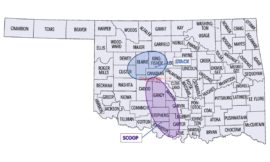One way to make the most of our minerals and royalties is to make sure that we are making the right decisions to minimize tax liability. I’m not talking about skipping out on your taxes but by making sure that you are taking the right deductions and credits or by leveraging an alternate date when valuing your property for estate tax purposes.
That is what we talk about today – using the alternate valuation date when it comes to estate taxes. To cover this sometimes overlooked concept, I brought back Rob Prentice with Turrett LLC. As you may remember, Rob appeared on Episode 32 of the Mineral Rights Podcast to talk about IRS mineral valuations for the purposes of setting a step-up in cost basis.
Using the embedded player above, you can download the episode to your computer or listen to it here! Be sure to also subscribe on iTunes!
About Our Guest
Rob has nineteen years of professional work experience in petroleum engineering, geology, mineral economics, mining, civil engineering, environmental engineering, GIS, and satellite remote sensing. He has managed projects oriented with oil, natural gas, mining, environmental, and infrastructure development.
Rob has overseas experience in the Middle East and Europe and served in the U.S. Navy.
He is the current President of the Colorado Chapter of the National Association of Royalty Owners (NARO) and the Managing Director of Turrett, LLC. Turrett performs oil and gas appraisal, valuation, acquisition and divestiture support, annual and quarterly reporting, cost allocation, trust and estate work, and expert witness assistance.
What is the Alternate Valuation Date and More:
- What mineral owners with inherited property should know about the alternate valuation date if they are faced with the possibility of owing estate taxes.
- Why the alternate valuation date can result in a lower estate tax bill if minerals make up a significant part of the overall estate.
- How setting a step-up in cost basis for inherited minerals that are sold to minimize long-term capital gains taxes can actually result in a higher estate tax bill and what to do about it.
- The requirements for using the alternate valuation date and how to decide if it is beneficial for you.
- The current estate tax exclusion is $11.58 million and how this might change in the future (check with your tax advisor to find out the current exclusion amount based on when you are reading this).
- A specific example using current oil prices and how not using the alternate valuation date could result in needing to sell assets to raise money to pay a 7 figure estate tax bill.
- Some forms of ownership that might not qualify for the Alternate Valuation Date.
Resources Mentioned in this Episode
- About Form 706, United States Estate (and Generation-Skipping Transfer) Tax Return
- What you need to know about the step-up in cost basis for inherited assets
How to Contact Rob
- Turrett, LLC
- Rob’s Office Phone: 720-833-7090
- Rob’s Email: rprentice@turrett.com
Thanks for Listening!
To share your thoughts:
- Leave a comment or question below (we read each one and your question may be featured in a future episode)!
- Ask a question or leave us feedback via email or voicemail: (720) 580-2088.
To help out the show:
- Leave an honest review on iTunes or wherever you get your podcasts – we read each one and greatly appreciate it. Plus, you can get a shout out on a future episode!
Thanks again – until next time!




